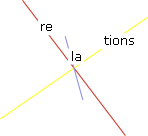|
|
Nadejda Koseva was born in Sofia, Bulgaria. She studied film direction at the State Theater and Film School in Sofia. During her studies, Koseva worked as assistant director to the famous Bulgarian director Georgi Djulgerov (in 1996, on the film "Miracle" and again in 1999, on the film Sand Watch). Djulgerov achieved prominence in the west with a number of films, including "Avant-garde," for which he received the Silver Bear at the Berlin Festival in 1978. His film "Measure for Measure" (1980) enjoys the status of a cult film in Bulgarian film history. Koseva's first short film, "CAKE," was shown at the Golden Rose Festival in Varna and the Eurounderground in Sofia. In 1999, she made the documentary "That's It," whose showings included the Golden Rithon Festival in Plovdiv. The film she submitted for her diploma in 2002, "Veronyka's Destiny," was invited to numerous festivals in Bulgaria and abroad. Nadejda Koseva accompanies a group of voluntary helpers as they visit an orphanage: the children are encouraged to script, film, and act in their own soap opera, during which they themselves are filmed.
Questions to the director:
What do you think of the idea to design a film as a joint project?
My personal feeling is that this is a great project - and not only because of the film making - but for giving all the artists the possibility to meeting each other. For me especially as someone who didn't know anyone in this business, it was completely amazing to find five other people approximately at my age who have common interests. So it's a kind of feeling of security that you know there are people in other countries that are on the same level, that there is a kind of connection.
What was the influence on you and your work by meeting with directors from six countries? Did you all share the same artistic goals?
First, if I was born in a different country the results would have been approximately the same, because it's an inner sight you show outside. But there are some shadows, some new answers that you have deep in your roots. In the roots of your grandfathers, of your country, your culture. And that makes the difference. Actually this topic as such is part of my film as well.
The film project runs together here in Germany. Has this fact also had an impact on the project or on your work?
Our countries and Germany are on completely different stages. Like on a radio: They are on different waves. That's the one side which impact isn't very strong. For me it was a great chance to see how people work here, to learn and most of all to fill up energy.
In your film I had the feeling that it is told more or less by the editing. How did you worked out this concept?
I was thinking about overgoing time and places. I do believe that there is a strong connection between people that can overgo the distances and the watch. Dealing with time has been a big film issue for a long time. Dealing with distances however is something that is not that explored. For example it really keeps my mind busy knowing that my friends in New York are sleeping right now or when I'm home someone else is doing something completely different somewhere else. So I wanted to underline this. For example when the young couples go out of the bathroom then the mother opens her arms. And you have the subconscious feeling that she's opening her arms for them. So the montage is really carefully thought.
Interview: Oliver Baumgarten, Chief editor of the film magazine "SCHNITT".
